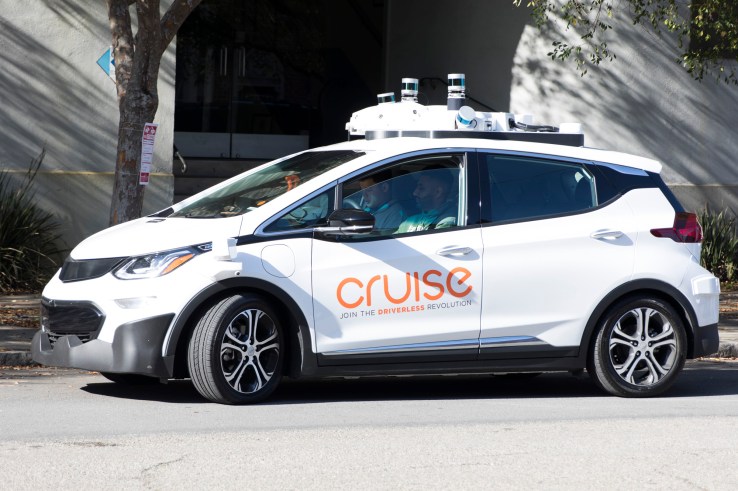California DMV disengagement report reveals self-driving improvements
![]()

California’s Department of Motor Vehicles releases an annual report detailing the number of disengagements reported by companies it has licensed to test autonomous vehicles on public roads in the state. This year, the report reveals some interesting details about the progress of some of those companies, including Waymo, GM’s Cruise and Tesla (sort of – you’ll see what I mean).
Cruise’s numbers were very positive, relatively speaking. The company’s reported around a 1400% improvement in performance, with the number of average miles between disengagements climbing from around 300 miles between each to aver 4,600.
To step back, the CA DMV classifies a disengagement as any event where a human safety driver has to assume manual control of the vehicle in order to 1. intervene in the interest of safety, or 2. take control because the AV system has failed or disengaged on its own.
Cruise’s increase sheds light on why the company and GM seem so confident it’ll be able to launch an actual initial commercial service using autonomous vehicles sometime in 2019, a date it revealed it was targeting earlier this year. Jalopnik reported that one of the company’s disengagements wasn’t in the report, but the company noted that the system wasn’t taken over by the driver due to either safety concerns or a system failure in that instance, hence its omission.
“Cruise’s rapid rate of improvement, in the most complex testing environments, is why we’re confident in our ability to safely deploy self-driving cars in 2019,” Cruise said about the report in a statement to TechCrunch. For example, in November 2017 alone, our reported disengagement rate is equivalent to driving from SF to Detroit and back, in dense traffic the entire time.”
Waymo also saw its performance increase based on the year-over-year disengagement data, and the company tells us that has now driven over 4 million miles across the U.S., including 2 million miles driven just last year. Its total disengagement rate dropped to around 0.18 events per 1,000 miles driven, which is about 5,555 miles between disengagements on average – better than Cruise’s rate, though Cruise has claimed its focus on testing in dense urban settings like San Francisco makes its training more challenging.
As for Tesla, it says it didn’t spend any time during the year testing AVs on California roads despite having permission to do so. Tesla’s Autopilot software is considered a Level 2 semi-automated technology, so it doesn’t fall under the category of use covered by the DMV’s AV rules. Tesla also said that the data it gathers from all its cars on the road, combined with AV testing performed “in other settings, including on public roads in various other locations around the world” lets it develop its autonomous tech “more efficiently” than others focused on a few specific spots.